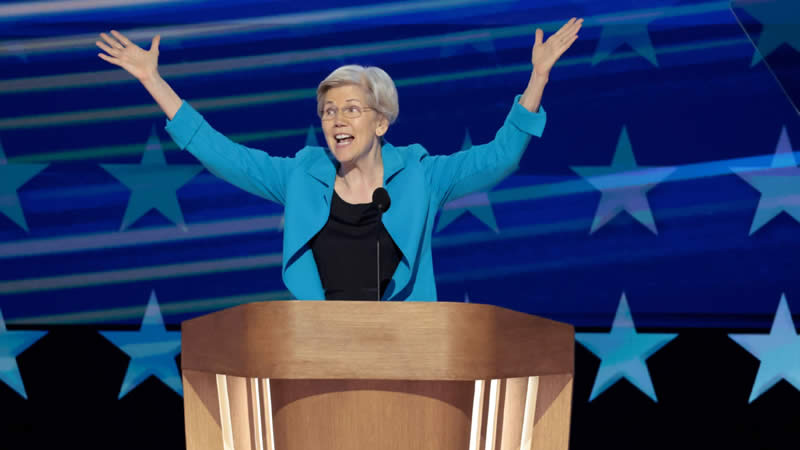In a heated exchange on Friday’s episode of Squawk Box, Senator Elizabeth Warren and CNBC host Joe Kernen locked horns over Vice President Kamala Harris’s proposed federal ban on price gouging in the food industry. The intense debate highlighted the sharp divide between their views on how to tackle the ongoing issue of skyrocketing food prices, leaving viewers with much to consider.
From the very start, the tension between Warren and Kernen was evident. Kernen began by challenging Warren’s support for the proposed price gouging ban, dismissing it as ineffective price control. “If beef is too high, people don’t move to chicken because competitors don’t come in to undercut where the beef prices are. Nothing works when you try to artificially control prices. It’s just a supply and demand issue. It’s a flawed idea,” Kernen argued.
Clearly irritated by Kernen’s confrontational tone, Warren retorted, “So did you have a question here?” This sharp exchange set the stage for a fiery confrontation that revealed their deep-seated disagreements on the root causes of inflation and the government’s role in regulating the economy.
Undeterred by Warren’s pushback, Kernen pressed on, questioning her support for what he deemed a misguided policy. “Yes, why would you propose a flawed idea when the real problem — if you really want to help the middle class, if you really, sincerely want to help people having trouble at the grocery store, it’s not price gouging that’s the issue,” he said. “And if you look at it seriously and you really want to help them, let’s do something about it together, fine,” he challenged.
Warren, known for her progressive stance on economic issues, wasn’t about to back down. She countered Kernen’s criticism by pointing to the long-standing precedent of price gouging laws in many states. “I understand if you want to do a lecture about this, but let’s just start with where have you been for the last 30 years as three dozen states have price gouging laws and they have used them effectively?” Warren fired back, underscoring the widespread use of such regulations at the state level.
As the debate grew more intense, Kernen labeled the effort to ban price gouging a “fool’s errand,” arguing that grocery stores operate on thin profit margins and that attempting to control prices across the supply chain would inevitably lead to higher costs for consumers. He accused Harris, Warren, and their allies of using the price gouging narrative as a distraction from other factors driving inflation, such as government spending.
Warren attempted to steer the conversation back to her point about market dominance, saying, “One of the causes of prices going up is there are companies that have market dominance that have said, oh, this is a moment when everyone is talking about—” But before she could finish, Kernen interjected, demanding more specific examples.
Frustrated by the interruptions, Warren shot back, “You just want to keep talking, and you won’t let me finish,” highlighting the difficulty of having a nuanced discussion on such a complex issue in a fast-paced television format.
Kernen, on his part, accused Warren of being “disingenuous” with her figures, suggesting that rising profit margins in the food industry could be attributed to factors beyond price gouging. He emphasized his belief in market forces as the solution to high prices, declaring, “The cure for higher prices is when people come in and undercut those prices and supply goes back up. This has been since 1776!”
This clash between Warren and Kernen encapsulates the broader debate over inflation and economic policy in the United States. While Warren and Harris advocate for stronger government intervention to curb what they see as corporate greed, critics like Kernen argue that such measures are misguided and could have unintended consequences. The heated exchange underscored the challenges of communicating complex economic ideas in the rapid-fire environment of cable news, leaving viewers to decipher the nuances of the arguments on their own.

